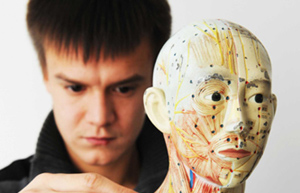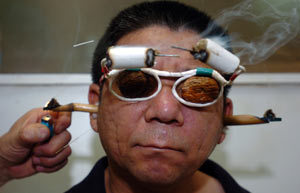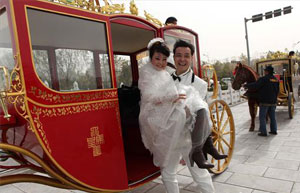Official executed for stealing cultural relics
Updated: 2010-11-20 08:15
(Xinhua)
SHIJIAZHUANG - An official of North China's Hebei province was executed Friday for stealing and selling cultural relics, including many on the state protection list, a local court said.
Li Haitao, chief of the cultural relics protection authorities of the imperial garden in Chengde city of Hebei, was executed after China's Supreme People's Court approved the death penalty on a conviction of embezzlement, the Intermediate People's Court of Chengde said.
Li, 50, replaced the relics with copies, inferior or incomplete objects and instigated subordinates to alter their archives.
Among the stolen items, which include a number of gold gilded Buddha statues, five were listed as state relics under first class protection, 56 were in the second grade and 58 in the third.
Li pocketed more than 3.2 million yuan ($482,240) and $72,000 after selling 152 stolen pieces.
Police have seized 202 relics and are still hunting for the other 57 items.
Li's four accomplices -- Wang Xiaoguang, Yan Feng, Zhang Huazhang and Chen Fengwei -- had been given jail terms of up to seven years with fines for buying and selling the relics.
Li's crimes went unnoticed until a Chinese expert found two royal cultural relics belonging to Beijing's Palace Museum at an auction in Hong Kong in 2002.
The expert reported his discovery to the state cultural heritage authorities, which prompted an investigation that found Chengde was the source of the relics.
Covering an area of 5.6 million square meters, the Summer Mountain Resort was Emperor Kangxi's and Emperor Qianlong's temporary imperial palace of the Qing Dynasty (1644-1911).
The mountain villa, the largest remaining classical imperial garden architecture in China, and the outlying temples were placed on the World Heritage list in 1994.
Paper's Digest

China bags Asiad team tennis title after 24 yrs
Wimbledon semifinalist Li Na led host China to capture the team tennis title on Tuesday at the Asian Games, accomplishing her Asiad tour with three consecutive victories.
China rate rises no panacea to curb inflation: PBOC adviser
Specials

Russian possessed with TCM
Born into a family of doctors, Maxime became interested in Traditional Chinese Medicine (TCM) at the age of 12, after hearing about TCM theories such as health preservation and recuperation.

Acupuncture takes stab at UNESCO list
Acupuncture and Peking Opera have been selected as candidates for UNESCO intangible cultural heritage status.

The wedding coach comes back to life
A groom carries his bride from a wedding coach in Xuchang, Henan province, Nov 11, 2010. Produced a local factory, various original hand-made wedding carriages were displayed on the streets, attracting young people chasing fashion and an environment-friendly lifestyle.




